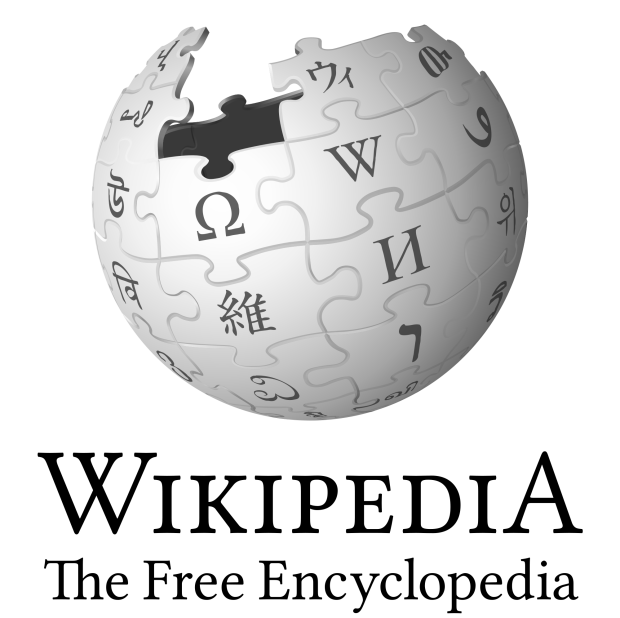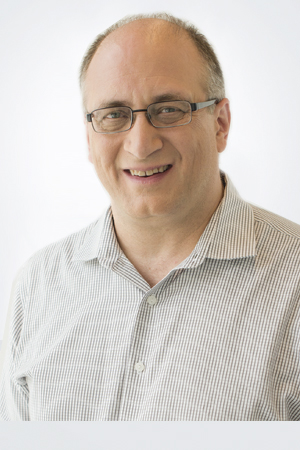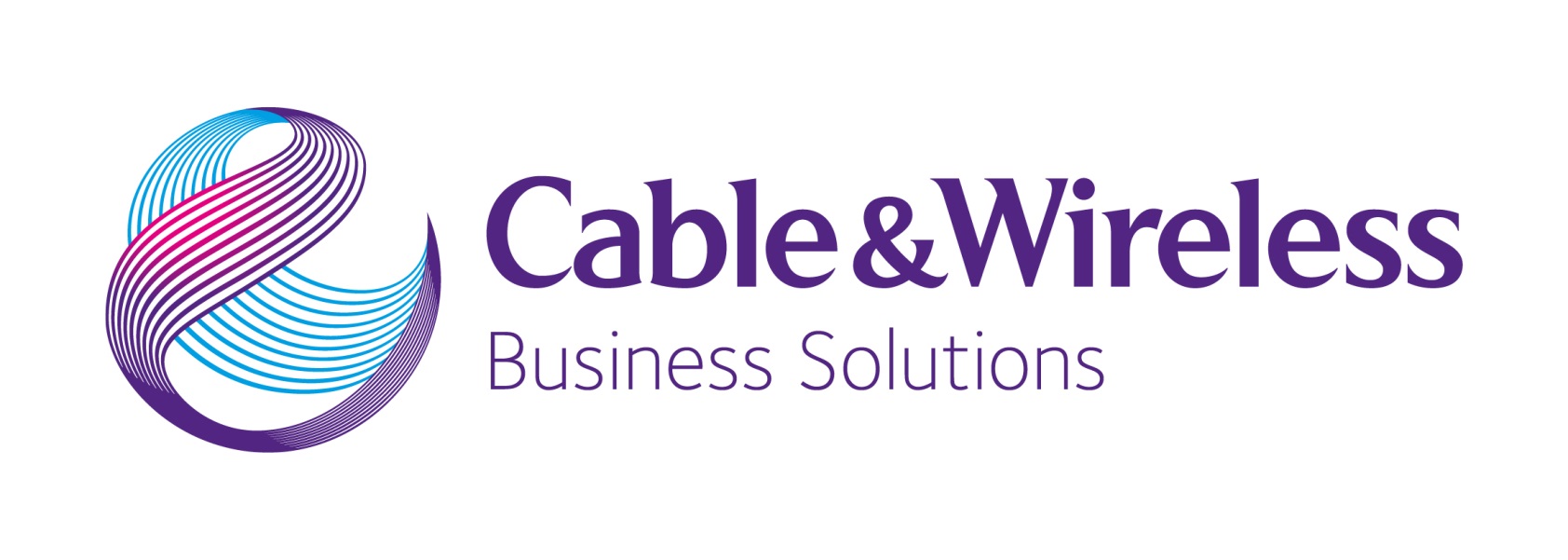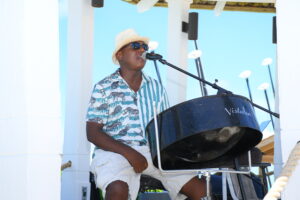News
CWC AGREES TO ACQUIRE COLUMBUS INTERNATIONAL INC. TO ACCELERATE GROWTH STRATEGY AND DELIVER SUPERIOR CUSTOMER SERVICE
Published
11 years agoon

Providenciales, 6 Nov 2014 (CABLE & WIRELESS NEWS RELEASE) –
The combined business will:
Deliver broader pro-consumer product offerings and improved services
Inject state of the art TV and next-generation super-high-speed broadband technology into CWC
Deliver huge opportunities to the Business and Government sectors
Provide rapid lead in fixed mobile convergence through premier network platform
Cable and Wireless Communications PLC (CWC) has reached a conditional agreement to acquire Columbus International Inc. The proposed acquisition, valued at US$3.025bn will enable the combined company to significantly accelerate its growth strategy, improve service delivery to customers in the region, offer customers a comprehensive portfolio of high-quality products and services, and strengthen their position against larger competitors. The increased scale and capabilities of the combined company will provide the technical platform and financial capacity to help enable CWC to drive greater innovation and expand our geographic footprint.
The combination of the two companies is consistent with global industry trends, where convergence of fixed and mobile networks, increasing content consumption growth, and continuing development of online applications are driving requirements for high bandwidth, fixed line networks and TV capabilities. Operators in Europe and North America, as well as regional competitors, are acquiring and constructing networks that are capable of supporting ever-growing data needs along with new video capabilities. The combination of the two businesses supports CWC’s new strategy and its four primary areas of focus: Drive Mobile Leadership; Accelerate Fixed-Mobile Convergence; Reinforce TV Offer; and Grow Business to Business and Business to Government sectors. This strategy is underpinned by CWC’s announced US$1.05billion Project Marlin capital investment programme. Additionally, CWC believes that the combination of the two businesses will generate material operating cost and capital expenditure synergies. Similarly, Columbus believes that the combined strengths of both companies will accelerate growth, provide the necessary scale to enhance the customer experience, and help to allow Columbus to achieve its goal to become the “Best service provider” and “Employer of Choice” in the region.
The proposed combination of CWC’s region-leading mobile footprint and existing fixed line infrastructure with Columbus’ pay TV capabilities and next-generation, state-of-the-art fibre networks will significantly expand the product and service offerings for customers and also advance the companies’ quad play ambitions. The combined business will also deliver the benefits of superior quality network infrastructure, fixed-mobile products and bundles, superior TV content at competitive rates, and a more attractive portfolio of products and services in the B2B and B2G segments.
Phil Bentley, CWC’s Chief Executive Officer said: “This is a transaction that transforms CWC, providing a step-change in growth and returns. Columbus offers complementary TV, Broadband and B2B capabilities in complementary markets. Together, we will create the best-in-class quad-play offering in the region, delivered on a superior mobile, fibre and subsea network. This is a significant opportunity to better serve our customers and improve the ICT infrastructure of the communities in which we operate, whilst accelerating our strategy and delivering materially enhanced returns and synergy benefits.”
Similarly, Columbus’ chairman and CEO, Brendan Paddick indicated that, “Together we will form a truly world-class company focused on our customers in the Caribbean, Central America and the Andean regions. The proposed acquisition makes both companies stronger, faster and smarter in competing with their larger competitors. The proposed transaction reinforces our commitment to transform connectivity in the region, to increase the attractiveness of the region to investors, to support the growth of the communities we serve by making them more globally accessible and to ensure that our customers always have access to the best products and services available.”
For both companies, the proposed acquisition also enables greater focus on the Caribbean, Andean and Latin American markets as a region that offers attractive growth. The proposed acquisition will provide new opportunities and focus in Colombia, Guatemala, Costa Rica, Honduras, El Salvador, Dominican Republic, Puerto Rico and Peru.
“Our goal is to provide customer-focused solutions and the highest level of service across the region. This agreement will accelerate our efforts through a strengthened set of assets and capabilities,” Bentley affirmed.
The recent acquisition of both Groupo Sonitel in Panama, combined with Columbus’ Lazus in acquisition in Colombia will accelerate CWC’s progress against the new streamlined strategy.
About Cable & Wireless Communications Cable & Wireless Communications Plc (CWC) is a full-service communications provider operating in 16 countries throughout the Caribbean and Latin America. Operating four leading businesses: – Cable and Wireless Panama, LIME, (the Caribbean excluding The Bahamas), BTC (The Bahamas) and Cable and Wireless Seychelles; CWC offers mobile, broadband, TV, domestic and international fixed line services in most of our markets serving over 5.6m customers. CWC also provides premium data centre hosting, telecoms, domestic and international managed data network services and custom IT Service Solutions to businesses and governments through the new unit, Cable & Wireless Business Solutions. Our mission is to grow customer relationships and lifetime value by becoming #1 for Customer Service. We are the market leader in most products they offer and territories they serve. For more information visit: www.cwc.com
About Columbus International Inc.
Columbus International Inc. is a privately held diversified telecommunications company based in Barbados. The Company provides digital cable television, broadband Internet and digital landline telephony in Trinidad, Jamaica, Barbados, Grenada, St. Vincent & the Grenadines, St. Lucia and Curacao under the brand name Flow and in Antigua under the brand name Karib Cable. Columbus also provides next generation connectivity and IT solutions, managed networking and cloud-based services under the brand Columbus Business Solutions. Through its subsidiary, Columbus Networks, the Company provides capacity and IP services, corporate data solutions and data centre hosting throughout 42 countries in the greater Caribbean, Central American and Andean region. Through its fully protected, ringed submarine fibre optic network spanning more than 42,300 km and its 38,000 km terrestrial fibre and coaxial network, Columbus’ 3,150 plus professionals provide advanced telecom services to a diverse residential and corporate client base of over 700,000 customers.
For more information visit www.columbus.co
Magnetic Media is a Telly Award winning multi-media company specializing in creating compelling and socially uplifting TV and Radio broadcast programming as a means for advertising and public relations exposure for its clients.

You may like
-


C&W BUSINESS WINS 2015 TOP FORTINET PARTNER AWARDS
-


Cable and Wireless and Wikimedia Foundation Sign Partnership Deal Mobile Phone Customers can now browse Wikipedia at no extra cost
-


Columbus Business Solutions, part of Cable & Wireless Communications, recognized in the Gartner Magic Quadrant for its Disaster Recovery as a Service solution
-


Cwc/Columbus Merger Finalized; Strong Regional Telecommunications Provider Emerges
-


CWC and Columbus Promise to Protect Consumer Interest
-


Cable & Wireless Communications’ Shareholders Vote Overwhelmingly in Favour of Merger with Columbus International
News
Commonsense, Not Confrontation: Why Kamla Persad-Bissessar Is Right
Published
1 month agoon
December 27, 2025
This debate did not start with Donald Trump, and it did not start this month.
For more than a decade, this reporter has had a front-row seat to repeated, urgent calls from across the Caribbean for stronger intervention by the United States in response to gun- and narcotics-fuelled violence that has hollowed out our communities. Long before today’s headlines, leaders warned that transnational gangs were outgunning police, draining public resources and stealing our youngest people.
Much of the public messaging leaned toward calls for fewer guns flowing from the United States, but the practical response from Washington evolved into something else: tactical undergirding of the Caribbean. Training, intelligence sharing, maritime surveillance and joint operations expanded under successive U.S. administrations — Republican and Democrat alike.
Then came Venezuela.
President Nicolás Maduro proved himself an unhinged and destabilising force, openly threatening Guyana’s oil-rich territory and pushing the region to the brink of a conflict no Caribbean state could afford. The United States showed up. The threat of war was blunted. That mattered.
But while geopolitical flames were contained, the narcotics trade exploded.
CARICOM convened emergency meetings on transnational gang violence. Crime became so pervasive that it was formally classified as a public health threat. Entire communities were terrorised. Courts clogged. Police forces stretched beyond capacity.
And now — quietly but noticeably — the tempo has shifted.
While no single forensic study can capture the full picture, it is easily verifiable on the ground that major narcotics busts and trafficking activity have slowed in recent months. Something has changed. Pressure works.
This is the reality Prime Minister Kamla Persad-Bissessar is responding to.
Her critics accuse her of breaking ranks. What she is actually doing is refusing to indulge in strategic hypocrisy — demanding international help to confront narco-terrorism while appearing to defend or excuse the very networks and actors we have spent years condemning.
Sovereignty is not an insult. The Caribbean invokes it constantly. To deny it to the United States — especially when the policies in question were telegraphed months in advance and remain adjustable — is not diplomacy. It is posturing.
What is most troubling is the region’s selective memory. CARICOM has directed months of rhetorical fire at Trump-era policies, yet when disaster struck — from security crises to Hurricane Melissa — the United States remained one of the region’s most reliable supporters. Outcomes matter more than allegiance theatre.
Kamla Persad-Bissessar is not suffering from Trump Derangement Syndrome. She is applying commonsense statecraft. She understands that small states do not gain leverage by moral outrage alone, and that credibility is lost when we appear aligned with individuals, regimes or activities we ourselves have deemed a threat.
Her warning to CARICOM is simple and necessary: do not undermine your own cause.
The Caribbean’s fight against narco-violence, corruption and instability has been long, costly and painful. If pressure is finally producing results, we should be wise enough to recognise it — and brave enough to say so.
Angle by Deandrea Hamilton. Built with ChatGPT (AI). Magnetic Media — CAPTURING LIFE.
News
Beaches Turks and Caicos Showcases and Supports Local Creativity
Published
5 months agoon
September 12, 2025
September 12, 2025
PROVIDENCIALES, Turks & Caicos Islands – The Turks and Caicos Islands are home to a wealth of creativity, from artisans and craft vendors to musicians and performers. Beaches Turks and Caicos, the Caribbean’s leading all-inclusive family resort, has pledged its continued support for these individuals by providing meaningful platforms for them to share their skills and stories with guests from around the world.
The resort’s commitment is most evident in its weekly Cultural Night showcase, where visitors are immersed in the vibrant traditions of the islands. Guests enjoy live performances which feature local music genres such as ripsaw, while artisans display and sell handmade creations. This event not only enriches the guest experience but also strengthens economic opportunities for local entrepreneurs.
Entertainment Division Manager Garett Bailey emphasized the significance of Cultural Night, “we want to showcase everything the Turks and Caicos Islands culture has to offer. Our goal is for guests to leave with a deeper appreciation of the island’s art, music and traditions, while giving local talent the opportunity to share their creativity with visitors from across the globe.”
Beyond Cultural Night, Beaches Turks and Caicos also welcomes local craft vendors onto the resort every Wednesday and Friday where they are offered a direct space to market their goods. Guests have easy access to the Turks and Caicos Cultural Marketplace, where they can purchase authentic local arts and crafts.
where they are offered a direct space to market their goods. Guests have easy access to the Turks and Caicos Cultural Marketplace, where they can purchase authentic local arts and crafts.
Managing Director, James McAnally, highlighted how these initiatives reflect the resort’s broader mission, “we are committed to celebrating and sharing the vibrant culture of these islands with our guests. By showcasing local artistry and music, we not only provide entertainment but also help sustain and grow the creative industries of the Turks and Caicos Islands. From our cultural showcases to nightly live music, we are proud to create authentic connections between our guests and the people of these islands.”
Local musician Keon Hall, who frequently performs at the resort, expressed gratitude for the ongoing partnership, “being able to share my music with Beaches’ guests has created lasting relationships. Some visitors return year after year and request songs from previous performances. This partnership continues to celebrate what we do and strengthens the bond between local artists and the resort.”
The resort’s support of local artisans and entertainers extends beyond business opportunity; it is about preserving heritage and sharing stories. Guests take home more than souvenirs; they leave with experiences that deepen their understanding of Turks and Caicos’ culture and history.
Public Relations Manager, Orville Morgan, noted the importance of this commitment, “for many visitors, these interactions represent their first genuine connection to the Turks and Caicos Islands. From artisans and musicians to farmers and transport operators, our local talent helps shape every guest experience. At Beaches, we are proud to give them the stage to share their stories and their heritage.”
Beaches Turks & Caicos remains dedicated to developing cultural connections and supporting the artisans, musicians and entrepreneurs whose creativity makes the Turks and Caicos Islands unique. Each guest experience is an opportunity to celebrate and sustain the spirit of the islands.
Caribbean News
“Barbecue” is Cooked! US Turns Over 11 Million Haitians into Potential Informants with $5 Million Bounty
Published
6 months agoon
August 12, 2025
August 12, 2025
The United States just set fire to the underworld in Haiti — and this time, the smoke might finally flush out the man many call the most feared in the Caribbean.
On Tuesday, the U.S. government slapped a $5 million bounty on the head of Jimmy “Barbecue” Chérizier, the ex-police officer turned gang boss accused of orchestrating massacres, torching neighborhoods, and strangling Haiti’s capital into chaos. This isn’t just a headline — it’s a full-blown game-changer.
turned gang boss accused of orchestrating massacres, torching neighborhoods, and strangling Haiti’s capital into chaos. This isn’t just a headline — it’s a full-blown game-changer.
That kind of cash — offered under the State Department’s Transnational Organized Crime Rewards Program — is enough to turn the country’s entire population, more than 11 million people, into potential informants overnight. Add the millions in the Haitian diaspora, and Chérizier isn’t just wanted. He’s surrounded.
The Number That Changes Everything
Five million U.S. dollars today equals about 655 million Haitian Gourdes. In a country where many scrape by on less than $5 a day, that’s not just life-changing — it’s life-defining. It’s enough to rebuild homes, put generations through school, or buy a one-way ticket far from the gunfire.
In a place where trust is scarce and survival is everything, that figure is more than tempting — it’s irresistible. For Chérizier, it means every friend could be a future informant, and every loyalist might be calculating the cost of staying loyal.
‘We Will Find Them’ — Jeanine Pirro, U.S. Attorney
Jeanine “Judge Jeanine” Pirro, the U.S. Attorney, set the tone with fire in her voice. “This indictment is the first of its kind,” she announced. “Jimmy Chérizier, also known as ‘Barbecue,’ is a notorious gang leader from Haiti who has orchestrated and committed various acts of violence against Haitians, including the 2018 La Saline attack in which approximately 71 people were killed. He both planned and participated in that massacre.
“Anyone who is giving money to ‘Barbecue’ cannot say, ‘I didn’t know.’ They will be prosecuted, and we will find them. They are supporting an individual who is committing human rights abuses, and we will not look the other way.”
Pirro wasn’t just going after Chérizier. She was sending a warning to the Haitian diaspora accused of feeding his war chest from abroad: the days of claiming ignorance are over.
‘No Safe Haven’ — Darren Cox, FBI
Then came Darren Cox, Deputy Assistant Director of the FBI, delivering the muscle of America’s most powerful investigative force. “There is no safe haven for Chérizier and his network,” Cox declared. “We are closing every link, every cell.” Since January, he said, the FBI has arrested three Top Ten fugitives, taken more than 19,000 criminals off the streets, and seized thousands of tons of narcotics — enough to save millions of lives across the U.S.
The FBI’s Miami and Houston offices have already bagged one of Chérizier’s Viv Ansanm associates inside the United States without firing a shot. “These efforts are a deliberate and coordinated plan,” Cox said, “to protect our communities and confront escalating threats from terrorist organizations like Viv Ansanm.”
‘Three-Year Investigation’ — Ivan Arvelo, HSI
Ivan Arvelo, Assistant Director of Homeland Security Investigations, brought the receipts. “This is the result of a three-year investigation into Chérizier’s procurement networks, cash pipelines, and operational financing that violates sanctions,” he explained. Arvelo described 400 structures destroyed, entire communities erased, and a gang exploiting U.S. dollars, technology, and immigration loopholes to keep its killing machine running. “We tracked how Americans unwittingly bankrolled brutality,” he said — proof that the net is tightening both inside Haiti and abroad.
‘The Worst of the Worst’ — Chris Lambert, State Department
Chris Lambert, representing the State Department’s International Affairs division, gave the political bottom line.
“Mass violence in Haiti must end,” Lambert said. “The instability resulting from Chérizier’s actions fuels illegal migration, regional instability, and transnational crime. We will continue to apply every tool available — including our rewards programs — to stop the spread of unchecked violence, especially to target the worst of the worst criminal leaders threatening the people of our hemisphere.”
instability, and transnational crime. We will continue to apply every tool available — including our rewards programs — to stop the spread of unchecked violence, especially to target the worst of the worst criminal leaders threatening the people of our hemisphere.”
Lambert confirmed what many have long known: Chérizier is not just a gang leader. He commands Viv Ansanm, officially designated in May as a Foreign Terrorist Organization. In the eyes of the U.S., that makes him not just Haiti’s problem — but everyone’s.
Why Haitians May Not Resist
In Haiti, money talks — loudly. And when you put 655 million Gourdes on the table, it shouts.
That’s the kind of figure that turns casual acquaintances into informants and makes even the most hardened loyalist wonder if the payout is worth more than the risk. It’s not a matter of “if” word gets out, it’s a matter of “who will be first to collect.”
For grieving families, it’s a chance at justice. For the desperate, it’s a chance at survival. For Haiti as a whole, it’s hope — wrapped in the most dangerous of temptations.
An Answer to Prayers
For years, Haiti’s headlines have been a scroll of horrors — kidnappings, executions, burned neighborhoods, bodies in the streets. Chérizier’s name has been attached to too many of them.
This move by the U.S. isn’t just strategy. It’s personal. It’s a signal to every Haitian — at home or abroad — that the days of impunity could be ending.
I’ll admit it: when I heard the news, I danced, I sang, and I nearly cried. Not because $5 million is a lot of money, but because of what it means — the possibility, at last, of stopping the man accused of helping turn Haiti into hell on earth.
Four officials, four angles, one mission: Pirro’s fire, Cox’s grit, Arvelo’s precision, Lambert’s conviction. Together, they’ve put the heat on “Barbecue” like never before.
BBQ is cooked. The only question now is: which one of over 11 million potential informants will serve him up?




